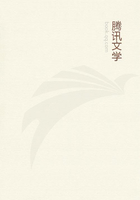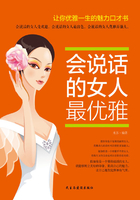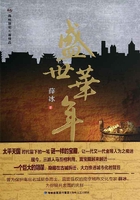It was a beautiful apartment, far too rich and elaborate to be designated by the name of "office," as it was called by every one who spoke of it; though of course it was Mr. Crawford's office, as was shown by the immense table-desk of dark mahogany, and all the other paraphernalia of a banker's work-room, from ticker to typewriter.
But the decorations of walls and ceilings, the stained glass of the windows, the pictures, rugs, and vases, all betokened luxurious tastes that are rarely indulged in office furnishings.
The room was flooded with sunlight. Long French windows gave access to a side veranda, which in turn led down to a beautiful terrace and formal garden. But all these things were seen only in a hurried glance, and then my eyes fell on the tragic figure in the desk chair.
The body had not been moved, and would not be until after the jury had seen it, and though a ghastly sight, because of a bullet-hole in the left temple, otherwise it looked much as Mr.
Crawford must have looked in life.
A handsome man, of large physique and strong, stern face, he must have been surprised, and killed instantly; for surely, given the chance, he would have lacked neither courage nor strength to grapple with an assailant.
I felt a deep impulse of sympathy for that splendid specimen of humanity, taken unawares, without having been given a moment in which to fight for his life, and yet presumably seeing his murderer, as he seemed to have been shot directly from the front.
As I looked at that noble face, serene and dignified in its death pallor, I felt glad that my profession was such as might lead to the avenging of such a detestable crime.
And suddenly I had a revulsion of feeling against such petty methods as deductions from trifling clues.
Moreover I remembered my totally mistaken deductions of that very morning. Let other detectives learn the truth by such claptrap means if they choose. This case was too large and too serious to be allowed to depend on surmises so liable to be mistaken. No, I would search for real evidence, human testimony, reliable witnesses, and so thorough, systematic, and persevering should my search be, that I would finally meet with success.
"Here's the clue," said Parmelee's voice, as he grasped my arm and turned me in another direction.
He pointed to a glittering article on the large desk.
It was a woman's purse, or bag, of the sort known as "gold-mesh."
Perhaps six inches square, it bulged as if overcrowded with some feminine paraphernalia.
"It's Miss Lloyd's," went on Parmalee. "She lives here, you know - Mr. Crawford's niece. She's lived here for years and years."
"And you suspect her?" I said, horrified.
"Well, you see, she's engaged to Gregory Hall he's Mr. Crawford's secretary - and Mr. Crawford didn't approve of the match; and so - "
He shrugged his shoulders in a careless fashion, as if for a woman to shoot her uncle were an everyday affair.
But I was shocked and incredulous, and said so.
"Where is Miss Lloyd?" I asked. "Does she claim ownership of this gold bag?"
"No; of course not," returned Parmalee. "She's no fool, Florence Lloyd isn't! She's locked in her room and won't come out. Been there all the morning. Her maid says this isn't Miss Lloyd's bag, but of course she'd say that."
"Well, that question ought to be easily settled. What's in the bag?"
"Look for yourself. Monroe and I ran through the stuff, but there's nothing to say for sure whose bag it is."
I opened the pretty bauble, and let, the contents fall out on the desk.
A crumpled handkerchief, a pair of white kid gloves, a little trinket known as a "vanity case," containing a tiny mirror and a tinier powder puff; a couple of small hair-pins, a newspaper clipping, and a few silver coins were all that rewarded my trouble.
Nothing definite, indeed, and yet I knew if Fleming Stone could look at the little heap of feminine belongings, he would at once tell the fair owner's age, height, and weight, if not her name and address.
I had only recently assured myself that such deductions were of little or no use, and yet, I could not help minutely examining the pretty trifles lying on the desk. I scrutinized the handkerchief for a monogram or an initial, but it had none. It was dainty, plain and fine, of sheer linen, with a narrow hem.
To me it indicated an owner of a refined, feminine type, and absolutely nothing more. I couldn't help thinking that even Fleming Stone could not infer any personal characteristics of the lady from that blank square of linen.
The vanity case I knew to be a fad of fashionable women, and had that been monogrammed, it might have proved a clue. But, though pretty, it was evidently not of any great value, and was merely such a trifle as the average woman would carry about.
And yet I felt exasperated that with so many articles to study, I could learn nothing of the individual to whom they belonged. The gloves were hopeless. Of a good quality and a medium size, they seemed to tell me nothing. They were but slightly soiled, and apparently might have been worn once or twice. They had never been cleaned, as the inside showed no scrawled hieroglyphics.
But all of these conclusions pointed nowhere save to the average well-groomed American woman.

